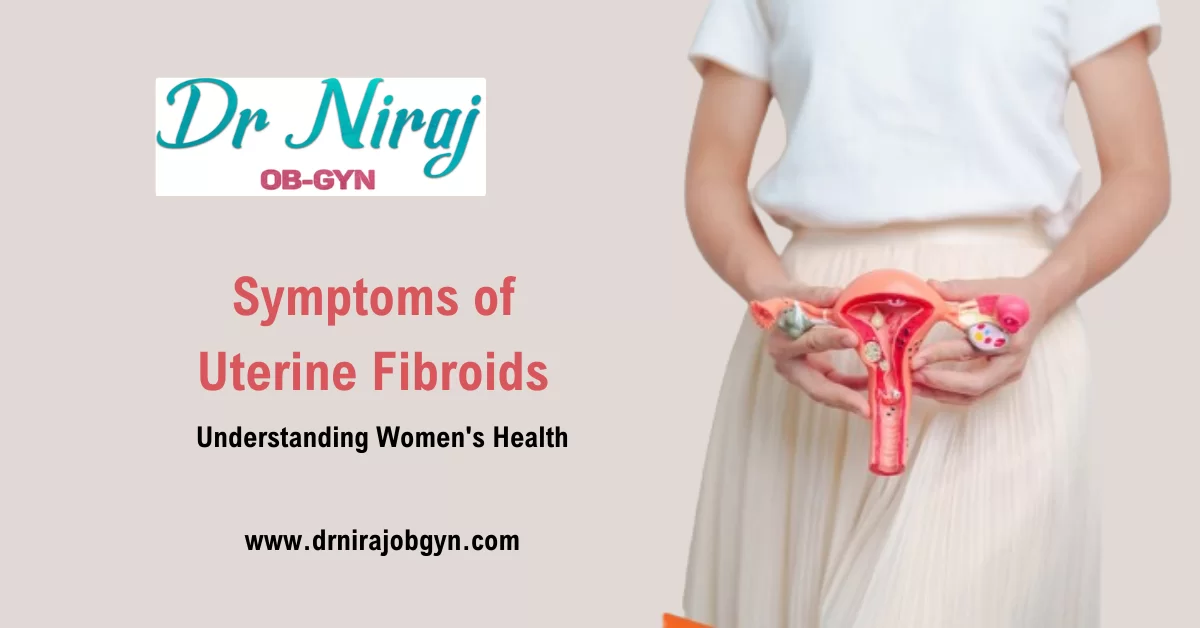
Discovering the Symptoms of Uterine Fibroids: Understanding Women’s Health
Symptoms of Uterine Fibroids: Uterine fibroids, also known as leiomyomas, are non-cancerous growths that develop in the uterus. While often benign, these growths can lead to various symptoms affecting women’s health and quality of life.
This article dives deep into understanding these symptoms, their impact, and ways to manage them effectively.
What are the Symptoms of Uterine Fibroids?
Uterine fibroids manifest in diverse ways, impacting women differently based on factors such as size, location, and number of growths. Recognizing these symptoms is crucial for early detection and timely intervention.
Let’s explore some of the key signs to watch out for:
1. Heavy Menstrual Bleeding
One of the hallmark symptoms of uterine fibroids is heavy menstrual bleeding. Women may experience prolonged periods with excessive blood flow, often leading to anemia and fatigue. This symptom can significantly disrupt daily activities and quality of life.
2. Pelvic Pain and Pressure
Pelvic pain and pressure are common complaints among women with uterine fibroids. The presence of these growths can exert pressure on surrounding organs, causing discomfort, cramping, and a sensation of fullness in the pelvic region.
3. Frequent Urination
Uterine fibroids can also lead to frequent urination due to their impact on the bladder. As fibroids grow larger, they can compress the bladder, reducing its capacity and triggering the urge to urinate frequently.
4. Pelvic Discomfort During Intercourse
Women with uterine fibroids may experience pelvic discomfort during intercourse, also known as dyspareunia. The presence of fibroids can make sexual intercourse painful or uncomfortable, affecting intimacy and overall well-being.
5. Abdominal Swelling
As fibroids grow larger, they can cause abdominal swelling or bloating, leading to a protruding abdomen. This symptom may be mistaken for weight gain or pregnancy in some cases.
5. Lower Back Pain
Lower back pain is another common symptom associated with uterine fibroids. The presence of these growths can exert pressure on the lower back and pelvic nerves, leading to chronic discomfort and stiffness.
6. Constipation and Difficulty Emptying the Bladder
In some cases, uterine fibroids can interfere with bowel movements and bladder function, causing constipation and difficulty emptying the bladder. These symptoms arise when fibroids exert pressure on the intestines or bladder, disrupting normal bowel and bladder habits.
7. Leg Pain or Swelling
Rarely, uterine fibroids may lead to leg pain or swelling due to pressure on the blood vessels surrounding the uterus. This symptom requires prompt medical attention to rule out complications such as deep vein thrombosis.
8. Infertility or Pregnancy Complications
While not always symptomatic, uterine fibroids can sometimes lead to infertility or pregnancy complications. Depending on their size and location, fibroids may interfere with implantation, fetal growth, or the birthing process.
9. Miscarriage or Preterm Labor
Pregnant women with uterine fibroids may face an increased risk of miscarriage or preterm labor. Fibroids can disrupt the normal functioning of the uterus, leading to pregnancy loss or premature delivery.
10. Iron Deficiency Anemia
Chronic heavy menstrual bleeding associated with uterine fibroids can lead to iron deficiency anemia over time. This condition results from inadequate iron levels due to excessive blood loss during menstruation.
11. Fatigue and Weakness
Fatigue and weakness are common consequences of iron deficiency anemia, affecting women with uterine fibroids. These symptoms can impair daily functioning and reduce quality of life if left untreated.
12. Irregular Menstrual Cycles
Uterine fibroids can cause irregular menstrual cycles, characterized by variations in cycle length, flow, or duration. Women may experience unpredictable periods or changes in their menstrual patterns due to the presence of these growths.
FAQs (Frequently Asked Questions)
1. Are uterine fibroids cancerous?
No, uterine fibroids are typically benign (non-cancerous) growths that develop in the muscular wall of the uterus. However, in rare cases, a fibroid may contain cancerous cells, known as leiomyosarcoma. It’s essential to consult a healthcare provider for proper evaluation and diagnosis.
2. Can uterine fibroids cause weight gain?
While uterine fibroids can cause abdominal swelling or bloating, they typically do not directly cause weight gain. However, the perceived increase in abdominal size due to fibroids may lead to weight-related concerns. Maintaining a healthy lifestyle through diet and exercise is crucial for managing weight and overall well-being.
3. How are uterine fibroids diagnosed?
Uterine fibroids are commonly diagnosed through a combination of medical history, pelvic examination, and imaging tests such as ultrasound or MRI. These diagnostic tools help healthcare providers assess the size, number, and location of fibroids within the uterus.
4. What are the treatment options for uterine fibroids?
Treatment options for uterine fibroids vary depending on factors such as the severity of symptoms, patient’s age, and desire for future fertility. Some common treatment approaches include medication, minimally invasive procedures such as uterine artery embolization or laparoscopic myomectomy, and surgical removal of fibroids (myomectomy) or the entire uterus (hysterectomy).
5. Can uterine fibroids shrink on their own?
In some cases, uterine fibroids may shrink on their own, particularly after menopause when estrogen levels decline. However, this process can take several years, and not all fibroids will decrease in size spontaneously. Monitoring fibroid growth and symptoms through regular check-ups with a healthcare provider is essential for appropriate management.
Conclusion: Symptoms of Uterine Fibroids
In conclusion, understanding the symptoms of uterine fibroids is crucial for early detection, diagnosis, and management. By recognizing these signs and seeking timely medical intervention, women can take proactive steps to preserve their reproductive health and overall well-being. If you or someone you know is experiencing symptoms suggestive of uterine fibroids, don’t hesitate to consult a healthcare provider for proper evaluation and personalized treatment recommendations.

